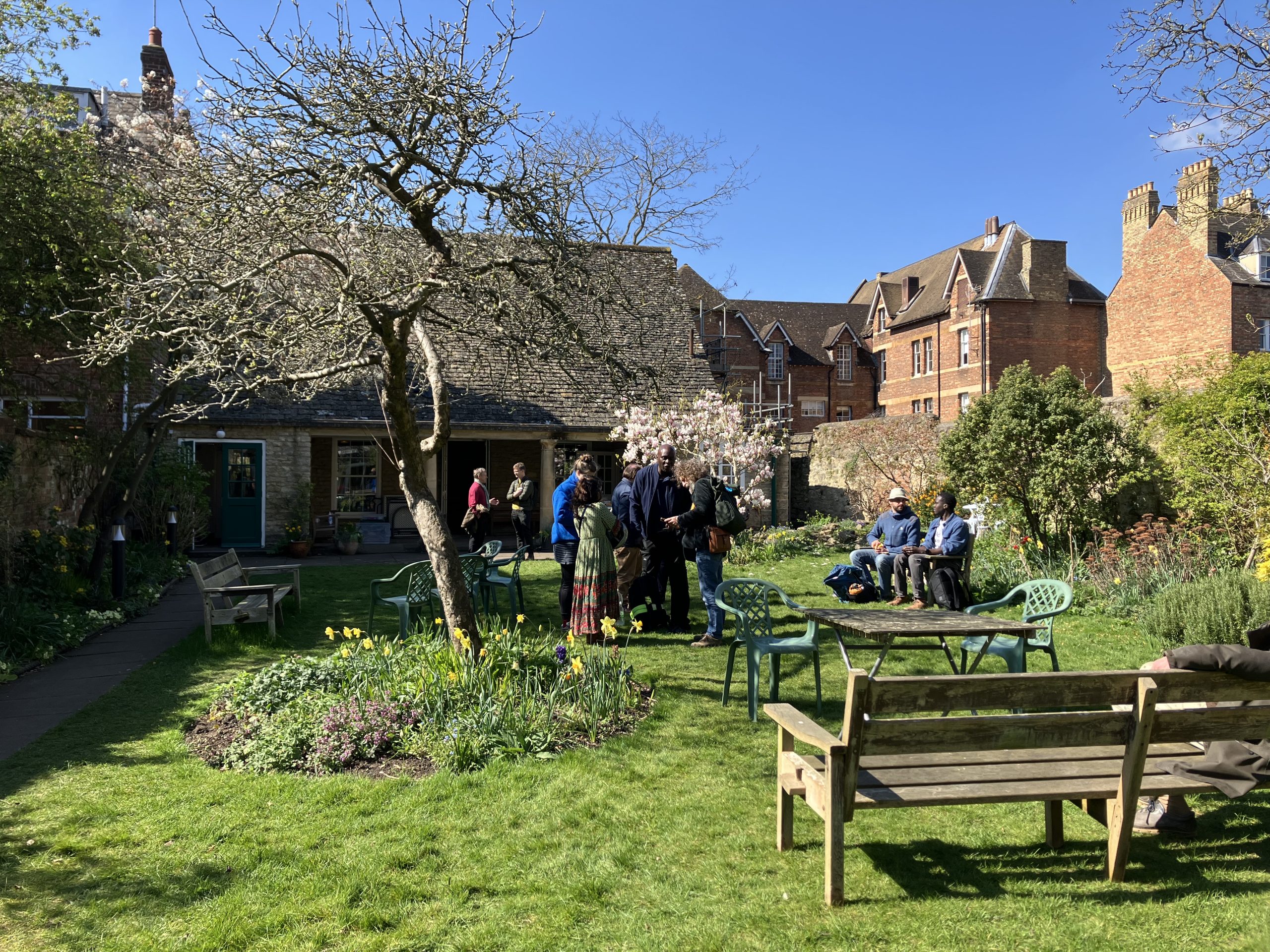Eleven years ago we hosted our first 3-day event on creative solutions to the housing crisis, this event was called ‘House of the Commons’. We did the same in 2016, a series of events like no other which explored radical, creative, and community-led solutions to the housing crisis. Back then, we didn’t have the answers to the housing crisis, but we wanted to bring people together—people working outside of the mainstream, often from the margins—to collectively imagine creative and radical alternatives.
Ten years on, some of these ideas have become mainstream, whilst others have fallen by the wayside, and some are still doggedly trying to find their feet. We returned to that spirit of exploration at our session at Marmalade 2025 (social change festival) on Wednesday 2nd April 2025. We gathered friends, old and new, to reflect on what’s changed, what’s working, and what still needs to shift in the world of housing in the UK. Our session was chaired by Lucy Warin (former T/D member, now Regeneration Officer at Bristol City Council), and featured a powerful panel of speakers whose work continues to inspire us.
We also shared a screening of the film, Tomorrow is Built Today, telling the story of Fusions Jameen, a black-led cooperative that built their own houses across South London (the film features Tim Oshidi, one of the speakers), before we had a round of questions and answers from people in the room.
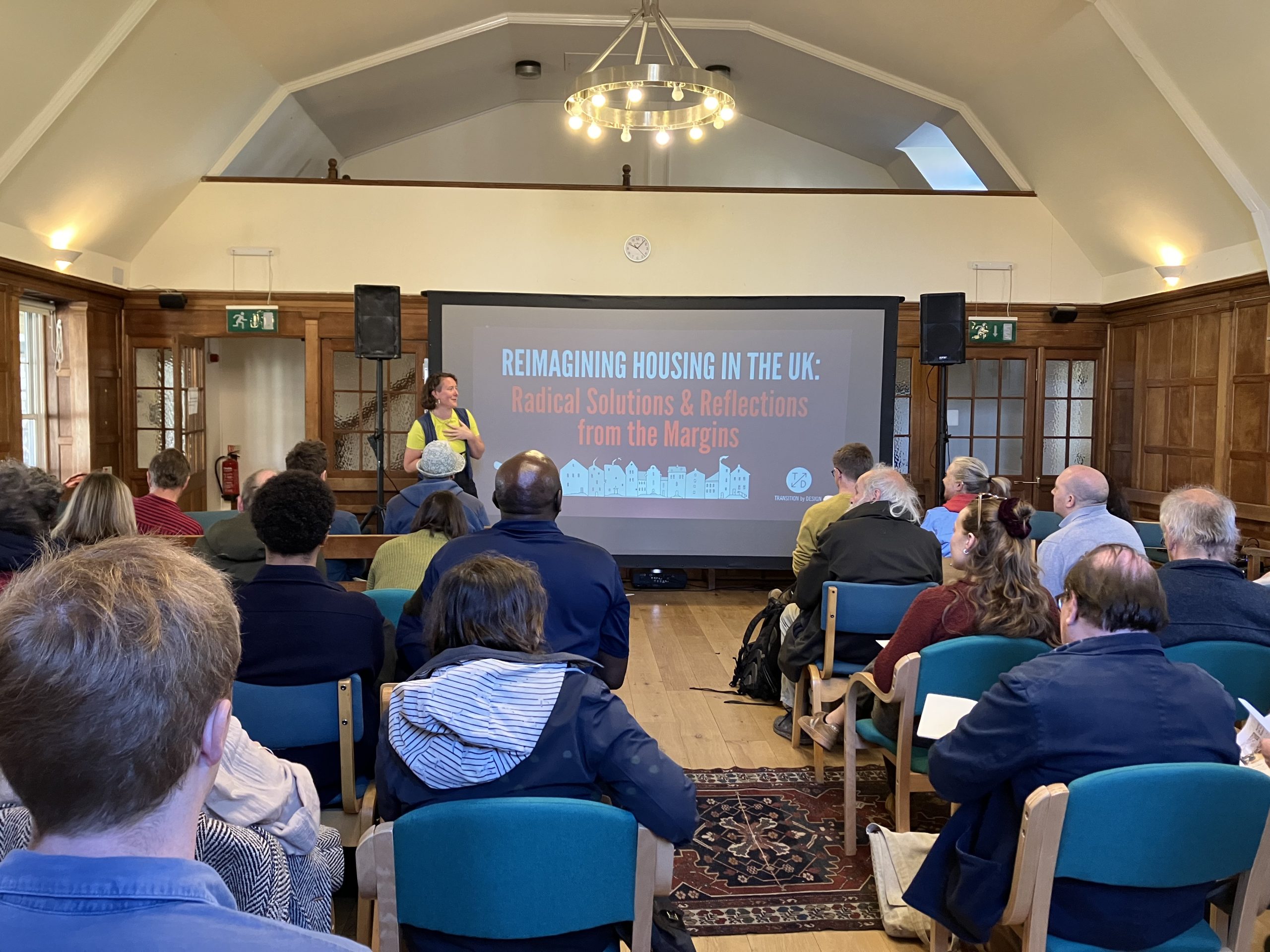
Insights from the Panel
Kay Sentance spoke from her lived experience of housing precarity and her journey into community leadership through the co-founding of Thame Community Land Trust. After receiving a no-fault eviction from her home of 17 years, she became a passionate advocate for rural, community-led housing, highlighting the need to shift from a “provide for” model to one that “provides with”—valuing residents as co-creators, not passive recipients.
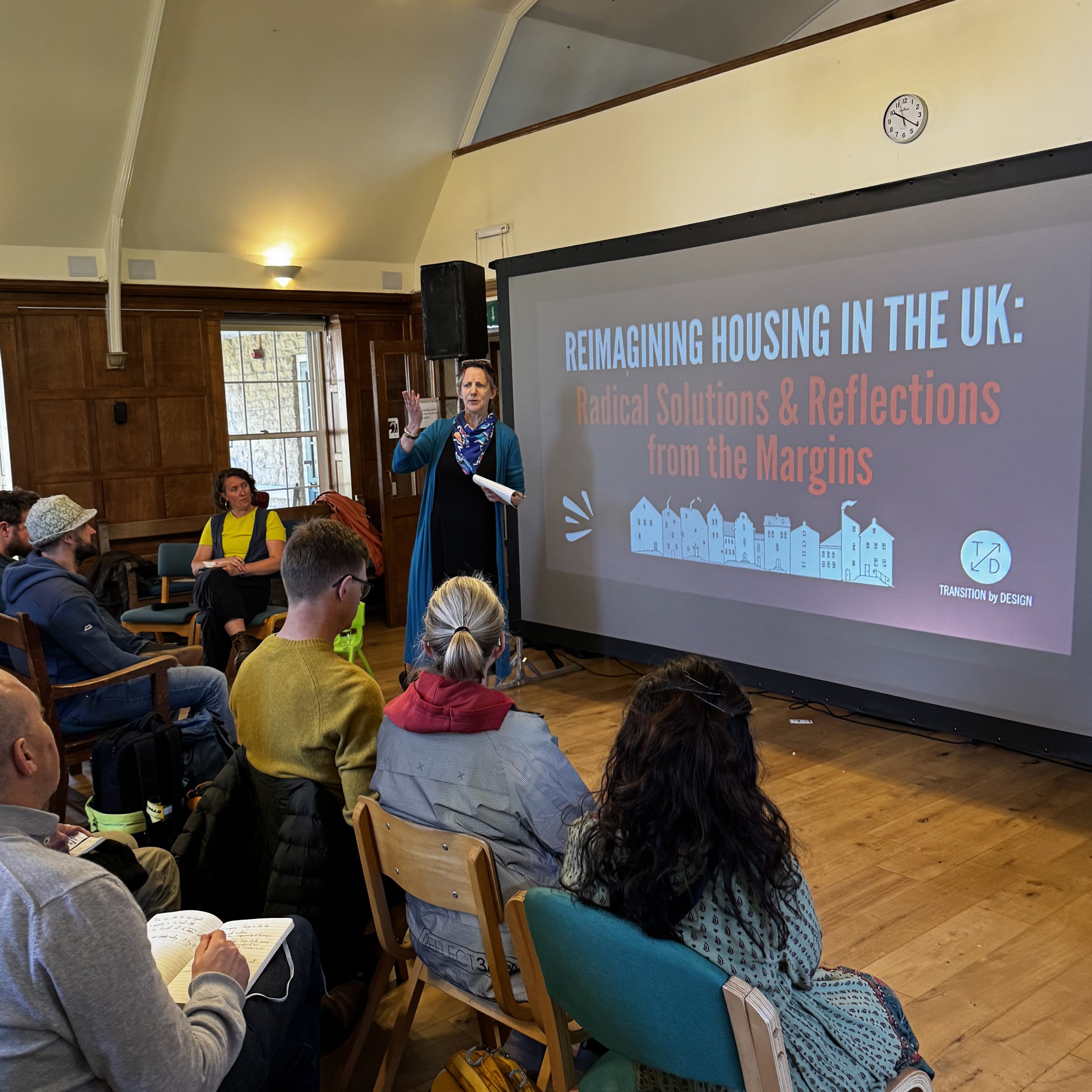
Jon Broome, a pioneering architect and founder of Architype, emphasised the power of people when organised and the importance of designing frameworks that allow ordinary people to build homes that meet their own needs. He reflected on the challenges of rising costs and risk-aversion in the current housing landscape, and the need to reclaim land and tools for community use.
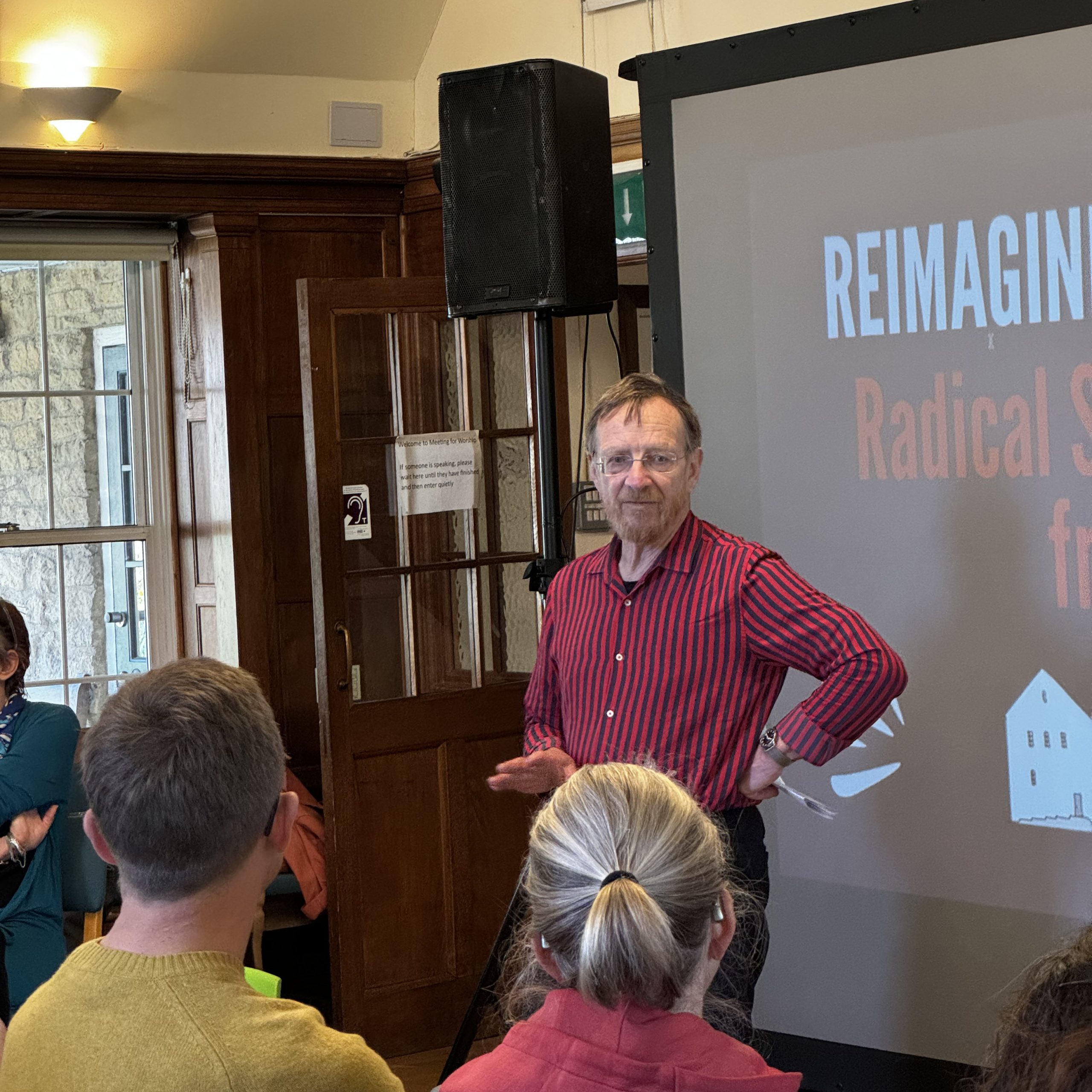
Tim Oshodi, founder of Downham CLT and a leader in Black-led housing initiatives, discussed the emotional and political layers of housing. He emphasised that housing must be trauma-informed and equitable, and that participation in the building process itself can be transformative, instilling pride and possibility in those involved. However, he cautioned that such collective processes require structures for support and conflict resolution to truly thrive.
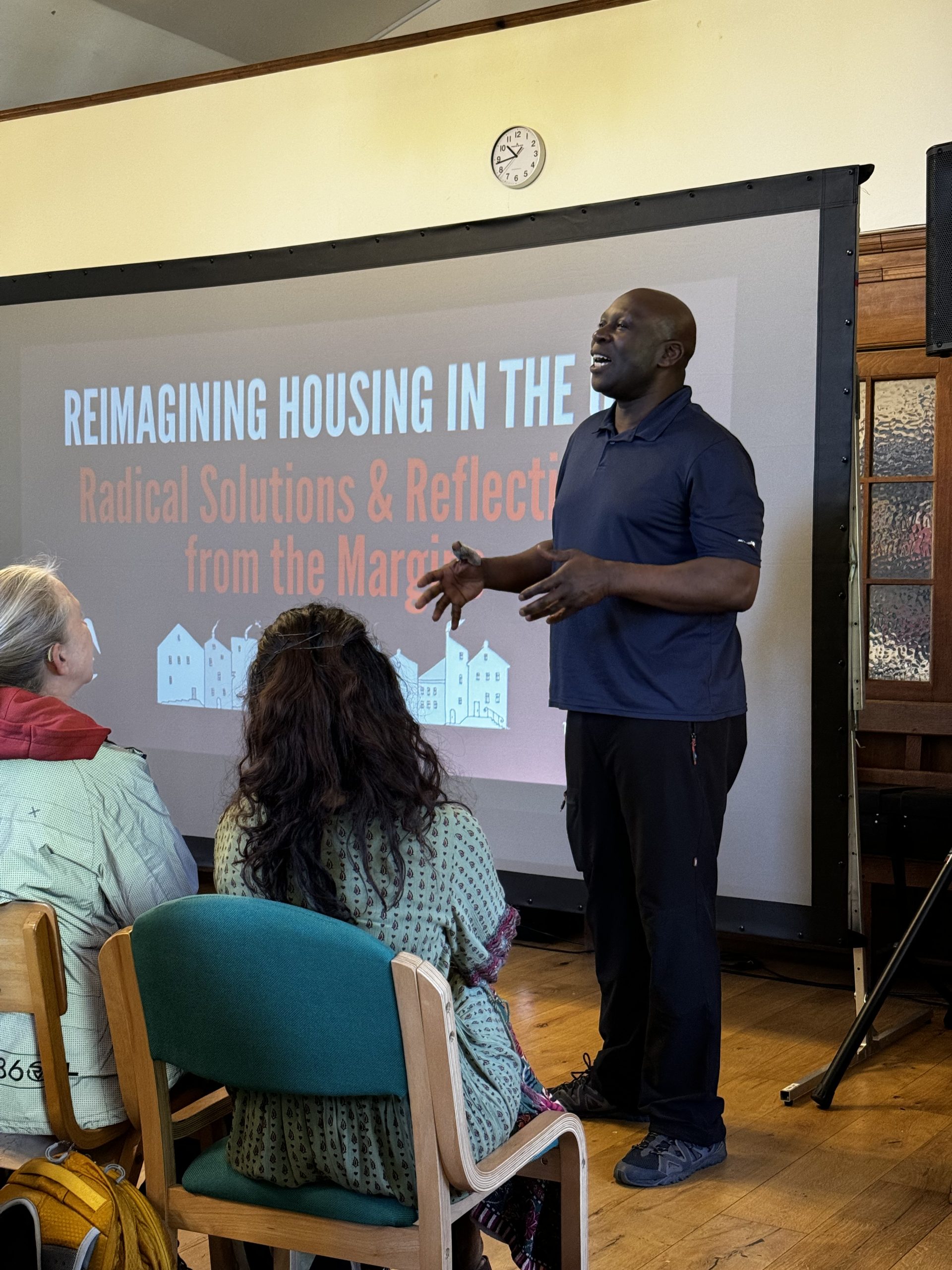
Lucy drew on her experience from our award-winning Homemaker Oxford action-research project, which explored how empty and underused spaces had been used to address Oxford’s extreme housing needs. She spoke about the design provocations that had emerged from this work. Later, through her role in community-led solutions within regeneration at Bristol City Council, she brought in powerful insights about community organising—emphasising the importance of ensuring that work on the margins needs to be well-resourced, and reflecting on the challenges of working with complex or difficult sites.
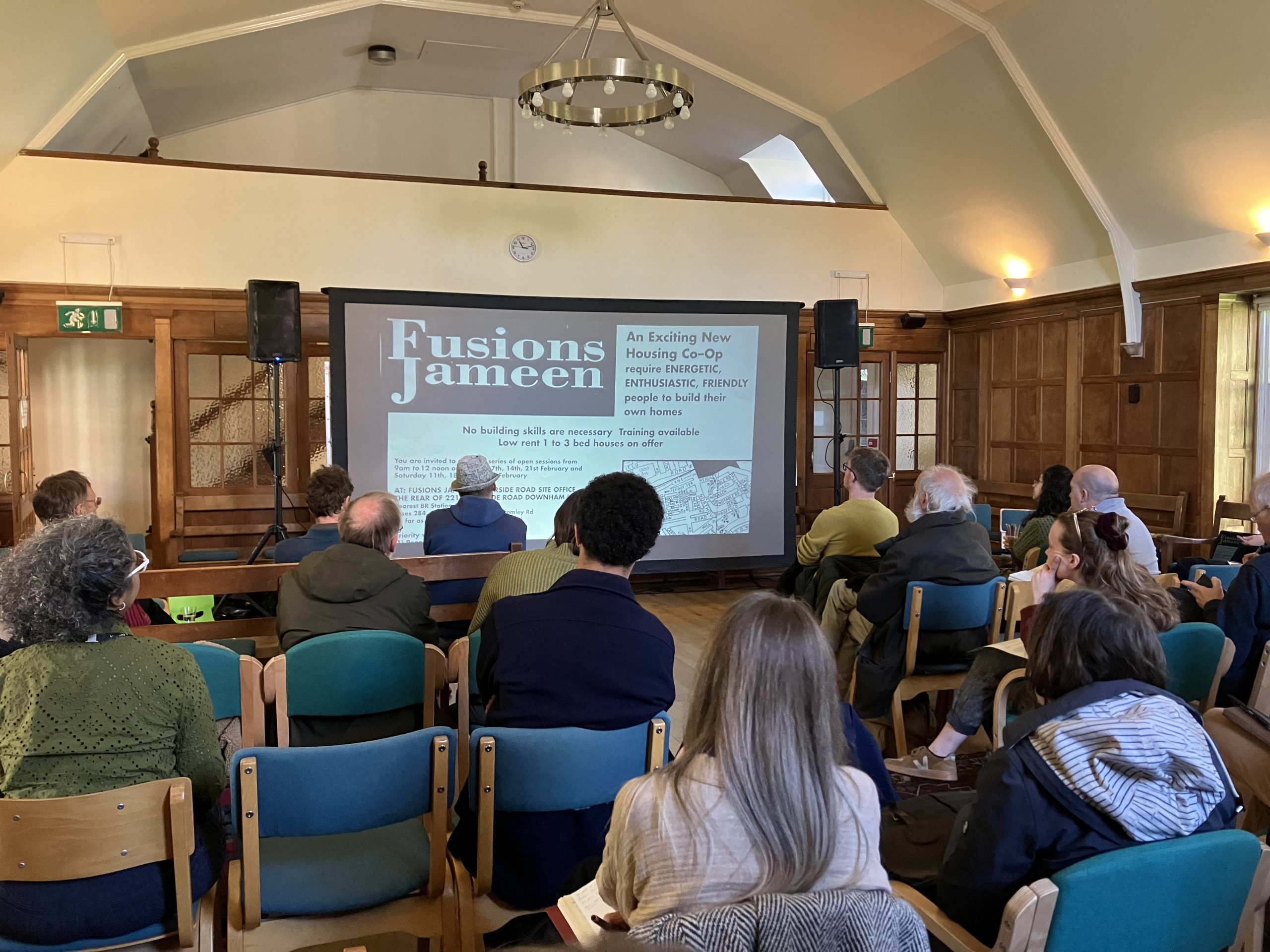
Key Themes & Takeaways
- We Need Greater Investment in Alternatives:
A recurring theme throughout the session was the urgent need for significantly increased funding and investment in alternative models of housing provision, including community land trusts, co-ops, and self-build initiatives. These models are delivering real solutions—but they are operating in an ecosystem that is still vastly under-supported compared to mainstream developers. - Activating the Imagination:
Speakers and participants called for a renewed effort to activate the imagination of residents—to support people in seeing themselves as capable of not only demanding better housing but creating it. Empowerment through imagination, participation, and education is key to unlocking the potential of communities to meet their own needs. - Housing Is a Political, Social, and Emotional Issue:
The conversation extended beyond technical solutions to consider housing as a site of identity, emotion, and power. Speakers emphasised the importance of joy, play, and belonging in how we think about the places we live—and the need to develop trauma-informed, life-affirming models of housing.
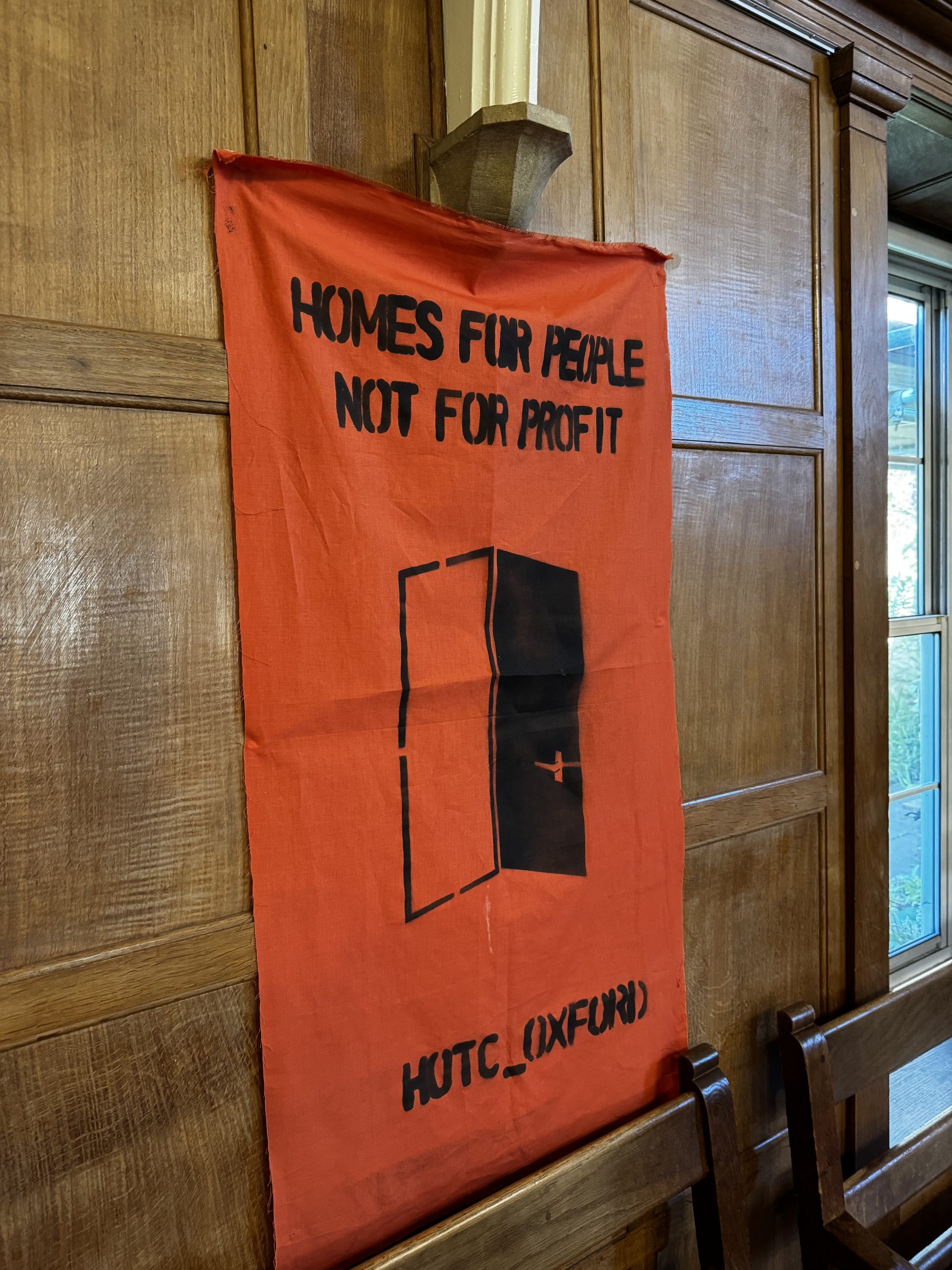
- Collective Resilience Requires Support:
Grassroots movements thrive on passion and belief, but the energy to sustain them needs nourishment. The session surfaced the financial and emotional toll of trying to create change from the margins. Speakers highlighted the importance of peer networks, mentorship, and sustained public support to avoid burnout and build momentum. - Rethinking Ownership and Equity:
Participants called for a shift from debt-based to equity-based housing models, and for strategies that centre community wealth building and shared ownership. There is untapped potential in reimagining underused buildings, embracing alternative finance, and creating housing that supports dignity, agency, and inclusion. - Audience Reflections and Future Questions:
The session concluded with a vibrant audience discussion, surfacing questions around financing alternative housing, maintaining motivation in grassroots efforts, and hopes for a future where housing is a shared, creative, and collective responsibility. Tim posed the question of not only “What do we need?” but “What makes us happy?”—pointing toward a vision of housing rooted in joy, connection, and possibility.
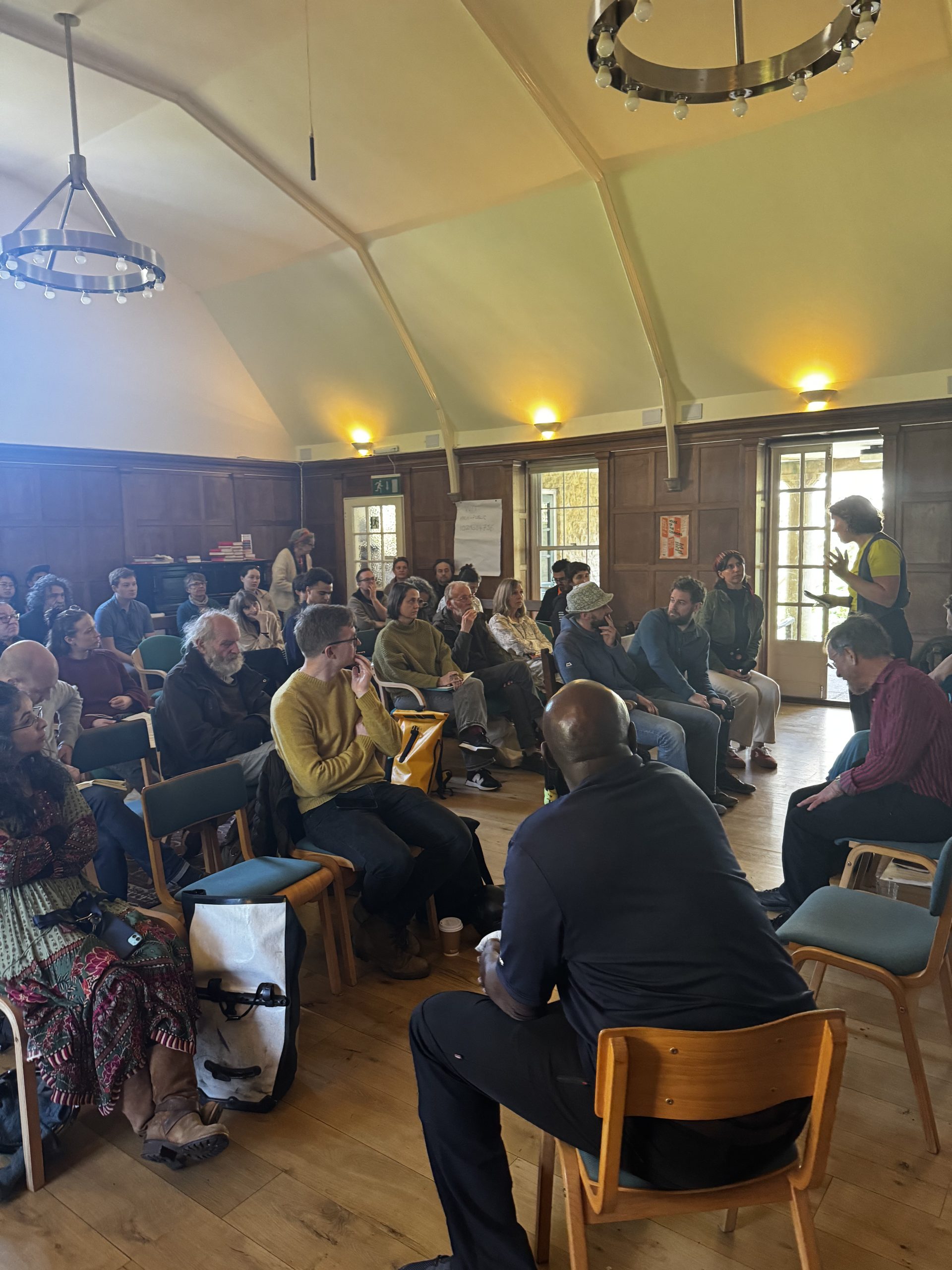
“We need to become citizens, not objects of society.”
The future of housing justice lies in reimagining not just where we live, but how we live—and in recognising the extraordinary potential of communities to lead that change.
Watch this space, as we are exploring if we can host another 3 day event, a follow-on from House of the Commons, on creative solutions to housing…
